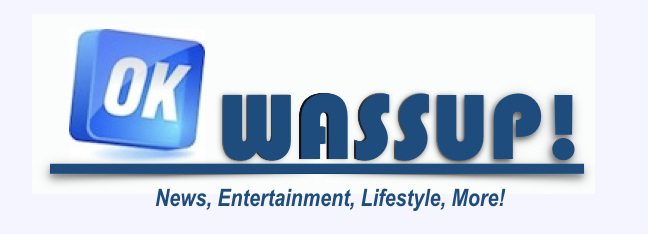Current Events
UNDERSTANDING HEALTH CARE 101
President Obama will sign into law today the most sweeping health care overhaul legislation in more than 4 decades — one that will have a significant impact on the lives of Americans across the country. But what does this mean for YOU?
 The $938 billion health care bill will be paid for by a combination of tax increases on the wealthy and cuts in Medicare. The bill will expand coverage to 23 million Americans, but many of the provisions are not expected to go into effect until 2014. The only exceptions include prescription drug coverage for older Americans and children who have been denied insurance due to pre-existing conditions. Most Americans (about 60%) already get adequate health coverage through their employers. If those Americans make less than $200,000, they are unlikely to see any changes to their existing coverage, since the bill is designed to continue requiring that employers provide health insurance benefits and a penalty for those who don’t. But the bill will affect those in the high income bracket and will assist poor Americans who currently cannot afford health coverage and may be overburdening the health care system.
The $938 billion health care bill will be paid for by a combination of tax increases on the wealthy and cuts in Medicare. The bill will expand coverage to 23 million Americans, but many of the provisions are not expected to go into effect until 2014. The only exceptions include prescription drug coverage for older Americans and children who have been denied insurance due to pre-existing conditions. Most Americans (about 60%) already get adequate health coverage through their employers. If those Americans make less than $200,000, they are unlikely to see any changes to their existing coverage, since the bill is designed to continue requiring that employers provide health insurance benefits and a penalty for those who don’t. But the bill will affect those in the high income bracket and will assist poor Americans who currently cannot afford health coverage and may be overburdening the health care system. Wondering what all this means for YOU? You can read through all the political muckery-muck yourself by clicking HERE. Or you can follow our simple explanation below to see what the new health care bill entails and when Americans can expect those changes to go into effect:
PRE-EXISTING CONDITIONS:
Also this year, insurance companies will be required to cover preventive services, which includes vaccines recommended by the Centers for Disease Control, such as the Swine-Flu vaccine. But by 2014, insurance companies will be prohibited from denying coverage to adult patients with pre-existing medical conditions or charging them more because of these conditions.
COLLEGE STUDENTS:
In what will surely make many college students and young Americans happy, the new health care bill now allows parents to keep children on their insurance plan until the age of 26. This provision will take effect this year.
PRESCRIPTION DRUGS:
 The new health care bill should close the so-called “doughnut hole” in prescription drug coverage. What that means is beginning this year, older Americans who hit the cap on their Medicare prescription drug benefits will be given a rebate. Once they spend $2,830, older Americans will receive a $250 rebate. Starting in 2011, older Americans who go past the allotted amount will be given a 50% discount on prescription drugs. Although the bill aims to close the “doughnut hole” completely by 2020, older Americans will still have to pay for 25% of their prescription drugs.
The new health care bill should close the so-called “doughnut hole” in prescription drug coverage. What that means is beginning this year, older Americans who hit the cap on their Medicare prescription drug benefits will be given a rebate. Once they spend $2,830, older Americans will receive a $250 rebate. Starting in 2011, older Americans who go past the allotted amount will be given a 50% discount on prescription drugs. Although the bill aims to close the “doughnut hole” completely by 2020, older Americans will still have to pay for 25% of their prescription drugs. TAXES:
Individual Americans with incomes of $200,000 or higher, and families with combined incomes of $250,000, will be subject to a new 3.8% “Medicare Tax.” They will also be taxed now on unearned income, including dividends, interest and capital gains.
 If the Senate does as expected and passes the “fix” the House of Representatives has proposed, there will also be a new tax on high-cost insurance plans, called the “Cadillac tax,” which employers will be required to pay. Insurance plans with a premium of $10,200 for individuals and $27,500 for families will be subject to a 40% tax. Many say these overly-generous insurance packages which include such luxuries as no co-payments and deductibles are responsible for increasing costs in the industry. But many labor union members and teachers negotiate such plans in exchange for lower pay. Companies in the medical industry will also be subject to higher taxes, including insurers, pharmaceutical companies and medical device manufacturers.
If the Senate does as expected and passes the “fix” the House of Representatives has proposed, there will also be a new tax on high-cost insurance plans, called the “Cadillac tax,” which employers will be required to pay. Insurance plans with a premium of $10,200 for individuals and $27,500 for families will be subject to a 40% tax. Many say these overly-generous insurance packages which include such luxuries as no co-payments and deductibles are responsible for increasing costs in the industry. But many labor union members and teachers negotiate such plans in exchange for lower pay. Companies in the medical industry will also be subject to higher taxes, including insurers, pharmaceutical companies and medical device manufacturers.MANDATORY INSURANCE:
By 2014, most Americans will be required to have health insurance or risk paying a fine, with the exception of low-income Americans. Small businesses, high-risk patients and the uninsured would have the option of shopping for coverage in health insurance exchanges, a marketplace where people could shop for and compare insurance plans. Lower income Americans will either receive subsidies to pay for their coverage, or be allowed to join Medicare. Employers will also be required to provide coverage to their workers, or pay a fine of $2,000 per worker. Companies with fewer than 50 employees, however, are exempt from this rule.
MEDICAID:
The bill greatly expands Medicaid and subsidies to low-income Americans. Those who are at 133% of the federal poverty level, or $29,327 for a family of four, would be eligible for Medicaid, beginning in 2014. Also in 2014, adults who don’t have children would be eligible for such benefits that have traditionally only been given to households with children.
COSTS:
 Many Republicans and other opponents of health reform have argued for weeks that the bill will increase the deficit and raise taxes on middle-income Americans. But according to the Congressional Budget Office, the non-partisan financial wing of government whose duty is to sort through this type thing, says the new health care plan will actually reduce the deficit by $138 billion over the first 10 years, and $1.2 trillion over the next 10 years. They also conclude that based on the language in the bill, the only rise in taxes will come to those with incomes of $200,000 or higher, and families with combined incomes of $250,000.
Many Republicans and other opponents of health reform have argued for weeks that the bill will increase the deficit and raise taxes on middle-income Americans. But according to the Congressional Budget Office, the non-partisan financial wing of government whose duty is to sort through this type thing, says the new health care plan will actually reduce the deficit by $138 billion over the first 10 years, and $1.2 trillion over the next 10 years. They also conclude that based on the language in the bill, the only rise in taxes will come to those with incomes of $200,000 or higher, and families with combined incomes of $250,000.So, there you have it. That’s the OK WASSUP! simple explanation of the new health care bill. Any questions? Leave a comment below and we’ll try to get an answer for you.






Thank you for this DJ. It was very helpful to those of us who didn't read the actual bill.
Yes indeed DJ. This info is very much appreciated!